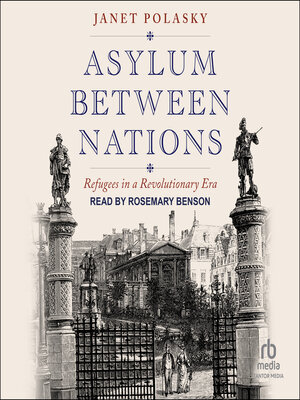
Sign up to save your library
With an OverDrive account, you can save your favorite libraries for at-a-glance information about availability. Find out more about OverDrive accounts.
Find this title in Libby, the library reading app by OverDrive.



Search for a digital library with this title
Title found at these libraries:
| Library Name | Distance |
|---|---|
| Loading... |
Why some of the most vulnerable communities in Europe, from independent cities to new monarchies, welcomed refugees during the Age of Revolutions and prospered
Driven from their homelands, refugees from ancient times to the present have sought asylum in worlds turned upside down. Theirs is an age-old story. So too are the solutions to their plight.
In the wake of the American and French Revolutions, thousands of men and women took to the roads and waterways on both sides of the Atlantic—refugees in search of their inalienable rights. Although larger nations fortified their borders and circumscribed citizenship, two port cities, German Hamburg and Danish Altona, opened their doors, as did the federated Swiss cantons and the newly independent Belgian monarchy. The refugees thrived and the societies that harbored them prospered. The United States followed, not only welcoming waves of immigrants in the mid-nineteenth century but offering them citizenship as well.
In this remarkable story of the first modern refugee crisis, historian Janet Polasky shows how open doors can be a viable alternative to the building of border walls.
Driven from their homelands, refugees from ancient times to the present have sought asylum in worlds turned upside down. Theirs is an age-old story. So too are the solutions to their plight.
In the wake of the American and French Revolutions, thousands of men and women took to the roads and waterways on both sides of the Atlantic—refugees in search of their inalienable rights. Although larger nations fortified their borders and circumscribed citizenship, two port cities, German Hamburg and Danish Altona, opened their doors, as did the federated Swiss cantons and the newly independent Belgian monarchy. The refugees thrived and the societies that harbored them prospered. The United States followed, not only welcoming waves of immigrants in the mid-nineteenth century but offering them citizenship as well.
In this remarkable story of the first modern refugee crisis, historian Janet Polasky shows how open doors can be a viable alternative to the building of border walls.







